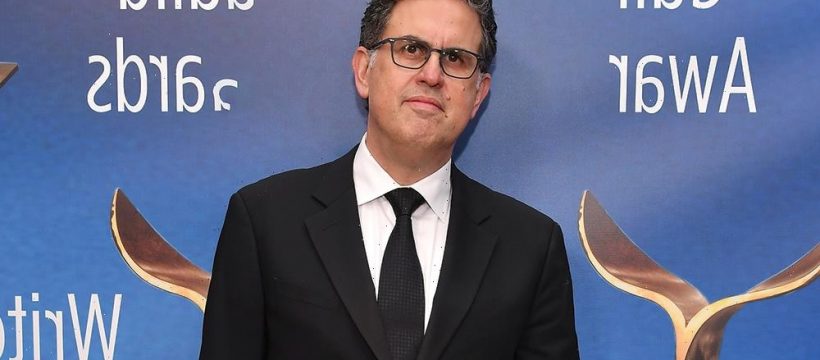When his tenure as president of the Writers Guild of America West began four momentous years ago, David Goodman knew a groundswell was building for a campaign to end the decades-old practice of talent agencies earning packaging fees from TV shows and movies.
As such, the longtime comedy scribe and showrunner for “Family Guy” and “The Orville” realized that setting a strategy for slaying the dragon of packaging fees once and for all — the issue had percolated in the guild since the early 1970s — would be a top priority. While WGA leaders developed a pitch to bring to members, Goodman fervently hoped that the WGA’s grassroots wouldn’t be too engaged.
“People don’t believe me when I say this: I’m hoping they’re going to say, ‘We’re not on board for this,’ because then we don’t have to do it,” Goodman tells Variety in a lengthy interview before he passes the quill to his successor, Meredith Stiehm, on Sept. 21. “At every meeting I had with writers, all I wanted hear in my heart of hearts was ‘I don’t want to do that.’ But they found the case compelling.”
Against long odds, and more than 18 months of expensive litigation, the WGA was able to claim victory. All of the major Hollywood talent agencies begrudgingly signed new agreements with the guild banning agencies from receiving fees from producers for projects packaged around writer and showrunner clients.
Jay Sures, UTA co-president, acknowledges Goodman’s effectiveness at leading the guild through a difficult process. The WGA West chief had been a longtime client of UTA until he and thousands of other writers fired their agents in April 2019. Goodman has since signed with A3 Artists Agency.
“He’s a fierce advocate for his membership, and he was excellent at rallying the troops around his cause,” Sures tells Variety.
Goodman concedes that the campaign was hard and bitterly divisive, as there were strands among the WGA West’s 10,000-plus members who disagreed with the guild’s tough stance. Hard numbers are hard to come by, but according to rough estimates from agency sources, about 20% of writers who had been represented by one of the Big Three agencies at the heart of the dispute — WME, CAA and UTA — are no longer on the client roster.
The movement has been a boon to smaller agencies like A3 and Verve and to talent managers, who have seen their client ranks swell. A number of prominent former literary agents from the Big Three agencies have made the transition to manager amid the turbulence of the past few years. Goodman acknowledges that there was a strong vein of dissent among the ranks but it was never enough to undermine the campaign.
“I’ve personally lost a lot of friends over this,” he says. “People I used to really like, we don’t talk any more because of this.”
Goodman has his share of other unexpected curve balls that came at him during his tenure as president. The #MeToo movement gained steam just after he was elected in 2017. In 2020, the WGA had to scramble with other guilds and industry organizations to address member needs and workplace safety protocols for the COVID crisis.
On the positive side, Goodman notes that the majority of the WGA West’s 16-member board of directors are now women, and for the first time the guild’s top three officer positions will be held by women, with Michele Mulroney and Betsy Thomas joining Stiehm as vice president and secretary-treasurer, respectively.
“That’s a huge thing,” Goodman says of the progress toward gender parity. The new leadership trio has a mountain to scale given the rising tension in the industry about the master film and TV contract negotiations in 2023. Writers feel they are working harder for less money given the monumental shifts in the industry across TV and film and the changing nature of production.
“It’s known in the bones of every writer that the next (contract) negotiation is a crucial one,” Goodman says. “Writer income is dropping while the business is booming. From vertically aligned businesses, shortened seasons, mini rooms — writer pay is getting squeezed. Not just residuals but basic writer pay.”
The guild’s ability to pull off the talent agency franchise reform campaign sent a strong signal to Hollywood management that writers are ready to rally behind the WGA.
In the main, Goodman believes the agency battle, coupled with the social upheaval over the past few years, has only reinforced the central role that the guild plays in the lives of working writers.
“I was always surprised but gratified by seeing how much the guild means to the members,” Goodman says with a catch in his voice, “because it means a lot to me.”
Source: Read Full Article
